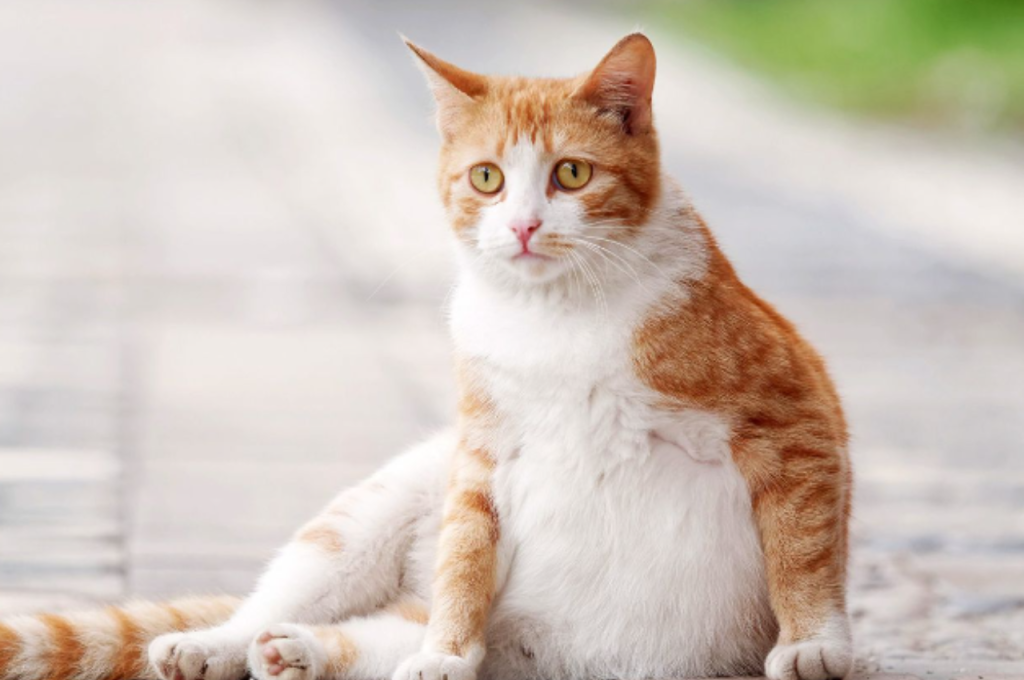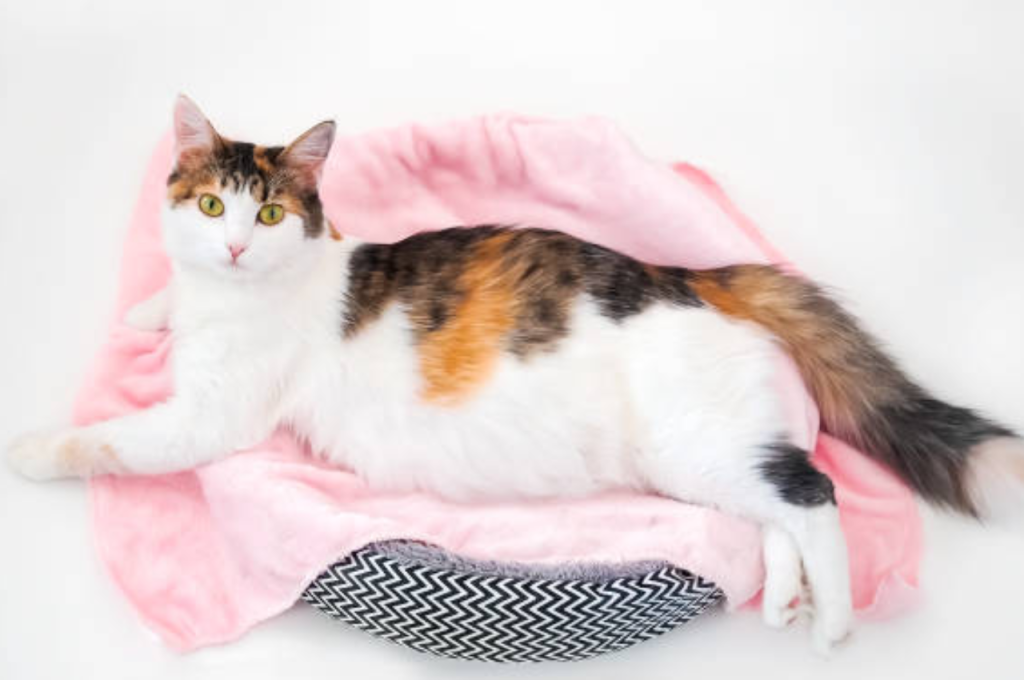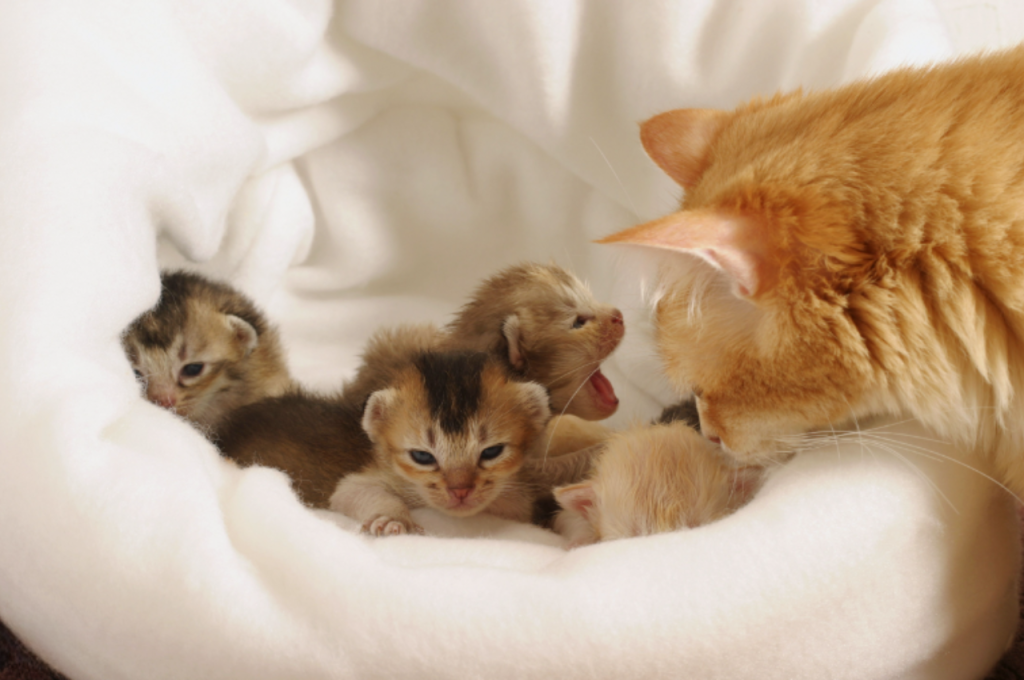To care for a pregnant cat and kittens, provide proper nutrition, regular vet check-ups, and a quiet, safe birthing area. Monitor the mother cat closely for any signs of distress or complications during pregnancy and birth.
Additionally, ensure the kittens are nursing and gaining weight, and keep them warm and clean. Proper care and attention are crucial for the health and well-being of the pregnant cat and her kittens. By following these guidelines, you can help ensure a smooth and successful pregnancy and birth for your feline companions. Remember, a caring and nurturing environment is essential for the health of both the mother cat and her newborn kittens.
Preparing for Your Cat’s Pregnancy
Preparing for your cat’s pregnancy involves providing proper nutrition, regular checkups with a veterinarian, and creating a comfortable and safe environment for your cat to give birth and care for her kittens. It is important to have a plan in place for the care of both the mother cat and her kittens during and after pregnancy.

Early Signs of Pregnancy
Early signs of cat pregnancy include noticeable changes in behavior and physical appearance. Your cat might become more affectionate or seek extra attention. Physically, you may observe a slight swelling of the abdomen and pinking of the nipples, known as “pinking up,” around three weeks into pregnancy. Additionally, your cat may experience morning sickness, leading to occasional vomiting. Increased appetite and weight gain are also common. Being aware of these early signs can help you prepare and provide the necessary care for your pregnant cat. Regular vet check-ups will confirm the pregnancy and ensure your cat’s health throughout the gestation period.
Veterinary Care Essentials
Regular veterinary check-ups and proper nutrition are vital during pregnancy. Preparing for Your Cat’s Pregnancy Caring for a pregnant cat and her kittens requires proper planning and attention. Start by identifying the early signs of pregnancy to ensure you can provide the necessary care. Consult with your veterinarian to establish a prenatal care plan. Make sure your cat is up-to-date on vaccinations to protect her and her kittens. Create a comfortable and safe space for your cat to give birth and nurse her kittens.
Additionally, stock up on essential supplies such as a nesting box, clean bedding, and nutritious kitten food.
Early Signs of Pregnancy:
- Increased appetite and weight gain
- Swollen or pink nipples
- Behavioral changes such as affectionate or agitated behavior
Veterinary Care Essentials:
- Regular check-ups to monitor the pregnancy
- Balanced diet tailored for pregnant cats
- Supplements recommended by your veterinarian
- Emergency contact information for your vet readily available.
Nutritional Needs for a Pregnant Cat
During pregnancy, a cat’s nutritional needs change significantly. To support the health of the mother and the developing kittens, it’s crucial to provide the right balance of nutrients. Understanding the nutritional needs of a pregnant cat is essential for ensuring a successful and healthy pregnancy.
Choosing The Right Food
Pregnant cats require a high-quality, balanced diet to meet their increased energy and nutrient requirements. Select a commercial cat food labeled as appropriate for “all life stages” or “growth and reproduction.” These formulas are specifically designed to meet the needs of pregnant and nursing cats.
Supplements and Vitamins
While a high-quality cat food should provide most of the essential nutrients, supplements may be necessary in some cases. Consult with a veterinarian to determine if additional supplements are needed. Common supplements for pregnant cats include folic acid, taurine, and omega-3 fatty acids.
Creating a Comfortable Environment
Ensure a cozy space for your pregnant cat and kittens by providing a warm, quiet, and secluded area. Use a comfortable bedding and keep the environment clean to promote a stress-free and safe space for them to thrive.
Creating a Comfortable Environment for a pregnant cat and her kittens is crucial for their health and well-being. Providing safe spaces for rest, maintaining the right temperature, and ensuring suitable bedding are essential factors to consider. In this section, we will discuss each of these aspects in detail.
Safe Spaces for Rest
A pregnant cat and her kittens need a quiet and secure area where they can rest undisturbed. It’s important to designate a separate room or corner of your home specifically for them. This space should be free from loud noises, excessive foot traffic, and other pets that may cause stress. Additionally, ensure that the area is escape-proof to prevent any accidents or injury.
Temperature and Bedding
Maintaining an appropriate temperature is crucial for the comfort and health of the pregnant cat and her kittens. The ideal temperature range for their environment is between 75-80°F (24-27°C). To achieve this, you can use a thermostat-controlled heating pad or a heat lamp.
However, it’s important to ensure that the heat source is placed in a way that allows the cat and her kittens to move away from it if they become too warm. When it comes to bedding, choose materials that are soft, absorbent, and easy to clean. Avoid using bedding with loose threads or fibers that could pose a choking hazard. You can opt for washable blankets, towels, or specially designed pet beds. Providing a few options allows the cat to choose the most comfortable spot for herself and her kittens.

In conclusion, creating a comfortable environment for a pregnant cat and her kittens involves providing safe spaces for rest, maintaining the right temperature, and selecting suitable bedding. By addressing these aspects, you can ensure their well-being and contribute to a stress-free and nurturing environment for their growth and development.
Monitoring Health During Pregnancy
Monitoring the health of a pregnant cat and her kittens is crucial for their well-being. Providing proper care involves regular check-ups, ensuring a balanced diet, and creating a safe and comfortable environment. By keeping a close eye on their health, you can ensure a smooth and successful pregnancy.
Common Health Issues
During pregnancy, it is important to closely monitor the health of your cat to ensure a safe and smooth pregnancy. Cats can experience certain health issues during this time, and being aware of these common issues can help you provide the necessary care. Some common health issues include:
- Gestational diabetes: This condition can affect cats during pregnancy and may require dietary changes or medication.
- Urinary tract infections: Pregnant cats are more prone to urinary tract infections, which can be identified by symptoms like frequent urination or blood in the urine.
- Parasites: Fleas, ticks, and worms can pose a risk to the health of both the pregnant cat and her kittens. Regular deworming and flea prevention are essential.
- Nutritional deficiencies: Pregnant cats require a balanced diet to support the growth of their kittens. Inadequate nutrition can lead to complications.
When to Contact The Vet
While monitoring your cat’s health during pregnancy, it is crucial to know when to seek veterinary assistance. Certain situations require immediate attention from a professional. Contact your vet if you notice any of the following:
- Prolonged or difficult labor: If your cat is in active labor for more than two hours without producing a kitten, it is important to contact your vet.
- Abnormal discharge: Unusual or foul-smelling discharge from the vulva could indicate an infection or complication.
- Loss of appetite: A pregnant cat should have a healthy appetite throughout her pregnancy. If she stops eating or shows a significant decrease in food intake, it may be a sign of a problem.
- Severe lethargy: While pregnant cats may exhibit some level of tiredness, extreme lethargy or weakness could signal an underlying issue.
- Visible signs of distress or pain: If your cat appears to be in pain, experiencing discomfort, or showing signs of distress, it is best to consult your vet.
Remember, monitoring your cat’s health during pregnancy is essential for the well-being of both the mother and her kittens. Regular vet check-ups, proper nutrition, and observation can help ensure a successful and healthy pregnancy.
The Birthing Process
Pregnancy and birth can be a delicate time for cats, requiring special care. Learn how to support a pregnant cat and care for her kittens, ensuring their health and well-being throughout the birthing process.
Signs of Labor
During the birthing process, watch for signs of labor in your pregnant cat. These include restlessness, nesting behavior, and a decrease in body temperature. Keep an eye on her closely for any unusual symptoms.
How to Assist During Birth
Provide a quiet and warm birthing area for the pregnant cat. Keep the area clean and ensure easy access to food and water. Stay nearby but avoid interfering unless necessary. Contact a vet if you notice any complications.
Caring for Newborn Kittens
When caring for newborn kittens, it’s essential to provide a warm and safe environment. Ensure they are feeding regularly and gently stimulate their elimination. Keep the area clean and monitor their health closely for any signs of distress.
Caring for newborn kittens is a crucial task, especially when the mother is a pregnant cat. As a responsible pet owner, it’s essential to provide proper care and attention to ensure their healthy growth and development. In this blog post, we’ll be discussing the key aspects of caring for newborn kittens, including feeding and nutrition, and keeping them warm and safe.
Feeding and Nutrition
Newborn kittens need to be fed every two to three hours, as they cannot regulate their body temperature or consume solid food. It’s crucial to provide them with the right nutrition to ensure their healthy growth and development. Here are some tips for feeding and nutrition:
- Use kitten-specific milk replacer, as cow’s milk can cause stomach upset.
- Feed the kittens with a syringe or bottle, ensuring they suckle properly.
- Monitor their weight gain and adjust their feeding schedule accordingly.
- Introduce solid food gradually, starting from four weeks of age.
- Provide fresh water and kitten food as they grow older.
Keeping Them Warm and Safe
Newborn kittens are vulnerable to temperature changes and need to be kept warm to avoid hypothermia. They also need a safe and secure environment to prevent accidents or injuries. Here are some tips for keeping them warm and safe:
- Provide a warm and comfortable space, such as a box or crate lined with soft blankets or towels.
- Use a heating pad or a hot water bottle to maintain a constant temperature, ensuring it’s not too hot or cold.
- Keep the kittens away from drafts, direct sunlight, or cold surfaces.
- Handle the kittens gently and avoid picking them up by their necks, as this can cause injury.
- Keep the environment clean and hygienic, ensuring the kittens are free from parasites or infections.
In conclusion, caring for newborn kittens requires patience, attention, and proper knowledge. By following these tips on feeding and nutrition, and keeping them warm and safe, you can ensure their healthy growth and development. Always consult a veterinarian if you have any concerns or questions about caring for your pregnant cat and kittens.
Postpartum Care for The Mother
Postpartum care for the mother cat is crucial for her health and the well-being of her kittens. Proper recovery and nutrition, as well as monitoring for complications, are essential aspects of postpartum care.
Recovery and Nutrition
After giving birth, the mother cat needs a warm, quiet, and comfortable space to recover. Provide her with a clean and cozy nesting area, away from any disturbances.
Ensure she has access to fresh water and high-quality, nutritionally balanced food to support her recovery and milk production.
Monitoring for Complications
Keep a close eye on the mother cat for any signs of postpartum complications such as mastitis, retained placenta, or excessive bleeding. Look for changes in her behavior, appetite, and physical condition. Monitor her closely to ensure that she is nursing her kittens and showing maternal care. If you notice any concerning symptoms, consult a veterinarian promptly.
Socializing and Finding Homes for Kittens
When it comes to caring for pregnant cats and kittens, socializing and finding homes for the kittens is an important aspect of their care. This process involves preparing the kittens for adoption and ensuring they find loving homes where they can thrive.

Best Age for Adoption
The best age for adoption of kittens is around 12 weeks. At this age, they have had enough time to develop social and behavioral skills from their mother and littermates, making the transition to a new home smoother.
Preparing Kittens for New Homes
Before the kittens are ready for adoption, it’s crucial to prepare them for their new homes. This includes ensuring they are weaned, litter box trained, and have received their initial vaccinations. Additionally, socializing them with humans and exposing them to different environments can help them adjust better to their new homes.
Conclusion
Taking care of a pregnant cat and her kittens is a significant responsibility. It requires providing proper nutrition, adequate shelter, and regular veterinary check-ups. As a pet owner, it’s essential to monitor the mother’s health closely and be prepared to intervene if any issues arise.
By following the tips outlined you can ensure a safe and healthy pregnancy for your feline friend and her adorable offspring. Remember, caring for a pregnant cat is a labor of love, and the rewards of having a happy, healthy family of cats are immeasurable.
